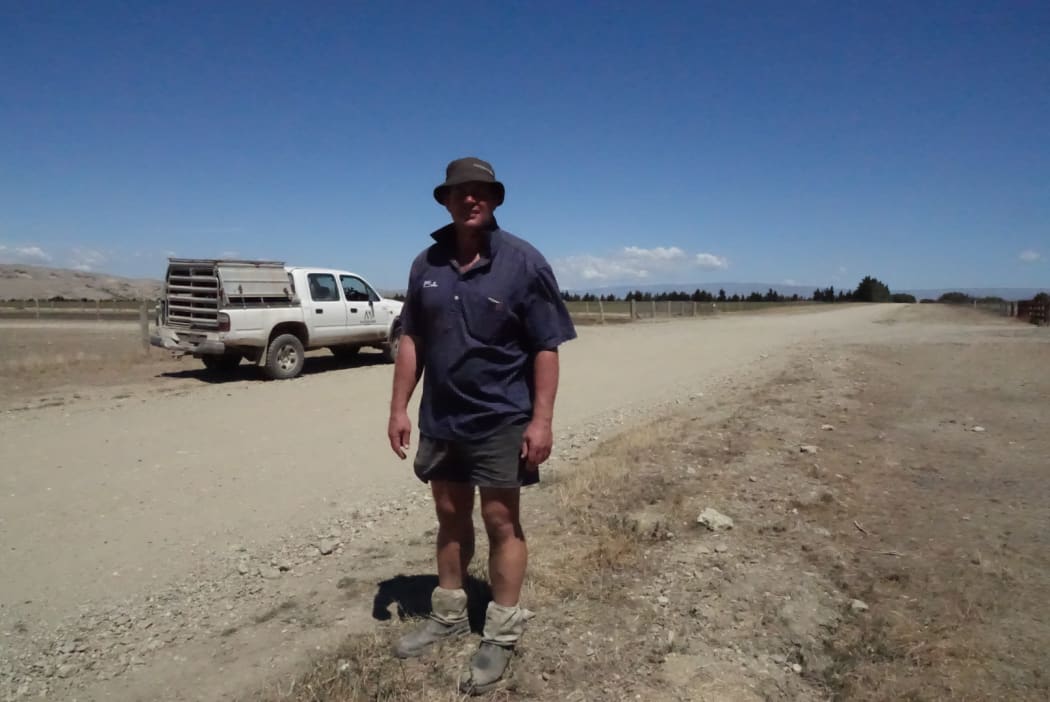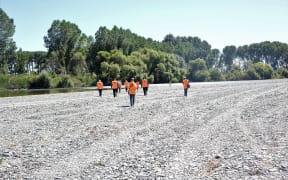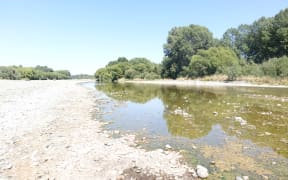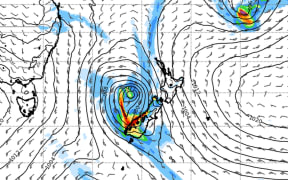Farmers in Central Otago may resort to voluntarily restricting their water use in the next week as the prolonged hot and dry weather shows no sign of abating.

Andrew Paterson of Federated Farmers said water rationing could take place within a week. Photo: RNZ / Ian Telfer
There's plenty of feed locked away after a wet spring but the ground is now brown and dry, and there's not much rain on the horizon.
Conditions last week prompted the Otago Regional Council to issue a call to farmers to watch water usage, reminding them that voluntary water restrictions were needed last year to prevent water takes being stopped.
Federated Farmers Otago high country chair Andrew Paterson said rationing could take place within a week.
"Most years we do go to rationing and I think with another week or two of hot weather we may," he said.
"But usually that period is quite short when we are getting to this part of the season."
Farmers had benefited from a good spring and though water levels remained good, storage was starting to be used and local waterways were getting lower, he said.
But it was another issue caused by the strong spring growth which could cause concern.
"The country looks very brown but there is quite a lot of cover," he said.
"Probably the biggest danger now with a really hot, dry period is fire. We can wind up with a situation like what happened in Tasman, so we don't want that and people want to be careful."
MetService meteorologist Tui McInnes said there was little relief in sight.
"Unfortunately it's more of the same at the moment - hot and dry," she said.
"As we go to next week we've still got this high pressure sitting over us and it keeps things still quite warm and, generally, a bit drier.
"We're looking like, as we go into week three, that we could be setting up for maybe a wetter week but there's too much uncertainty at this stage to know how that's going to pan out. So for now it's continuation of the warm, dry, clear weather."
He said it was good news for those wanting to enjoy an Indian summer after last week's cold spell, but not what farmers wanted.
The mercury was predicted to top 30 degrees Celsius in parts of the South Island this week, including Alexandra in Central Otago tomorrow.
The Otago Regional Council in last week's warning pointed out low river levels could stress or kill aquatic life and river plants and cause algae growth.
Forest and Bird's freshwater conservation advocate Annabeth Cohen said those issues were a concern.
"Some parts of the Lindis and Cardrona [Rivers in Otago] are known to run dry in sections but last year the Taieri River and the nearby Kyeburn dropped to record lows. This is in part due to the dry and warm conditions we can expect to increase with climate change but it's also to do with too much irrigation in a dry region which is causing groundwater aquifers to run low."
New Zealand needed to rethink how consents were issued and a year-to-year basis might be more appropriate in future, especially in dry regions like Otago.
"We've got to be nimble to adjust how much water we're taking because climate change means the water that we've relied on in the past is not going to be - in the same quantity and the same time of year - available in the future," she said.
Parts of the region's water plan are being reviewed at present. And the permits which allowed landowners to take water in parts of Central Otago under mining rights will cease in 2021.





